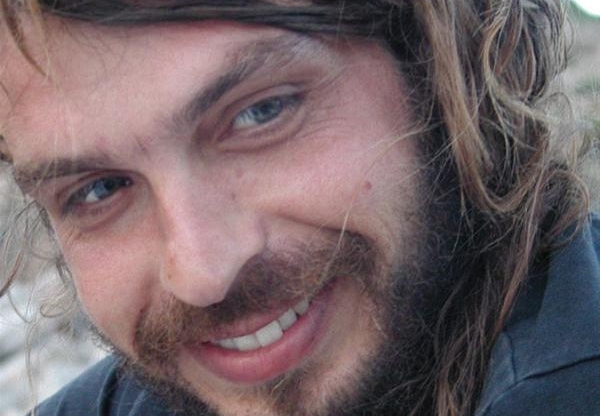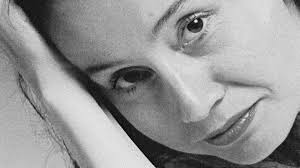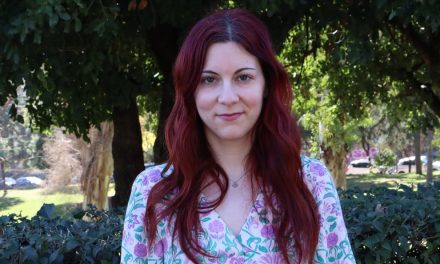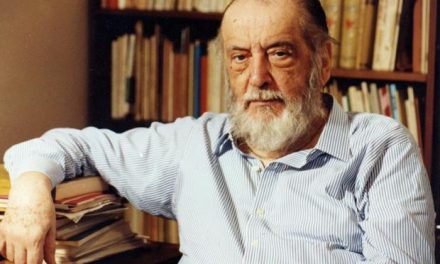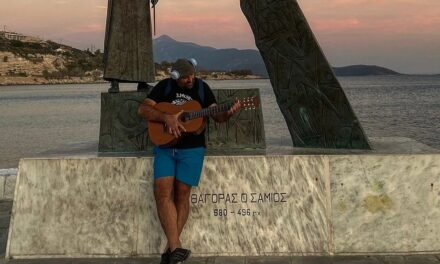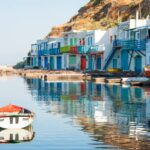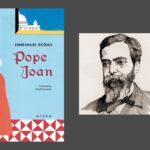Yiannis Makridakis was born in Chios in 1971 and studied mathematics. In 1997, he founded the Chios Studies Center with the purpose of research, archiving and studying of Chios, organizing its research and educational programs, while he published the quarterly journal ‘Pelinnaio’ up to 2011. In 2010 he moved from Athens to Volissos in the northwestern part of Chios “as an act of defiance against a global financial system he found unsustainable”. He set up the ‘Aplepistimio’ of Volissos, which organizes seminars on natural farming, an alkaline diet and an anticonsumption way of living.
He has written the following books: Syrmatenioi, xesyrmatenioi all. Chiot refugees and soldiers in the Middle East: Testimonials 1941-1946 (2006), 10.516 days: History of Modern Greek Chios 1912-1940, historical narrative (2007), One and Half Tin Cans, novel (2008), which was translated in Turkish, The right-hand pocket of the Cassock, novella (2009), Sun with teeth, novel (2010), Rabbit’s wool, novella (2010), The fall of Constantia, novel (2011) which was translated into French [La chute de Constantia, ed. S. Wespieser 2015], The rooster’s broth, novella (2012), God’s eye, novella (2013), Anti stefanou, novella (2015), The first vein, novella (2016). His political and philosophical articles have appeared in the international press and have been translated in English, German, French, Spanish, Dutch and Swedish.
Yiannis Makridakis spoke to Reading Greece* about his birthplace, Chios, where most of his books take place, his protagonists, “people who took an awry course in their life, yet defending it with dignity”, how the local and the global are closely interrelated and whether locality is still relevant in a globalized world, explaining why writing goes hand in hand with social activism, while also commenting on the current refugee flows and the need to “adopt a biocentric -and no longer anthropocentric- way of development and living”.

Most of your books take place in the island of Chios, your birthplace, eloquently depicting the language, customs, traditions and activities of the locals. What is it about Chios that continues to charm and inspire you? How do you respond to those who characterize you as a worthy descendant of Alexandros Papadiamantis?
My books take place mainly in insular micro-societies because I am inspired and charmed by the atmosphere that one can still experience in such societies. This atmosphere has been created through a long standing process of the islanders’ “fermentation” with the rough, yet sweet and serene Aegean scenery. Being an islander forms a major part of being Greek; yet, as it happens with all anthropological-ethnic diversities around the world, the islander identity is being overpowered and destroyed at a rapid pace by the onslaught of consumerism, resulting in the homogenization of societies through an environmentally destructive profit-oriented perception for development. As for Papadiamantis, it is a great honor to be compared to him; yet it is an easy and superficial comparison, solely based on the fact that insular societies hold a predominant role in Papadiamantis’ work as well.
In his review, Giorgos Kostakiotis wrote that your protagonists live on the margins of society, and the only way out is through total negation and rupture. Do you identify yourself with your heroes? Is rupture the only way to achieve our personal ‘catharsis’?
To some extent, I identify myself with my heroes, though I don’t really know if I have the same vigor and endurance. My heroes are usually people who took an awry course in their life, yet they are defending it with dignity. They are people who perceived life as a mission and stuck to that mission till the end. They are people who came in conflict with what they regarded as status quo because they couldn’t do otherwise. For the time being, that’s what I do myself and I hope to be able to do the same throughout my life. Rupture is, in my opinion, the perfectly natural reaction of a spirited human beingthat claims their right to life.
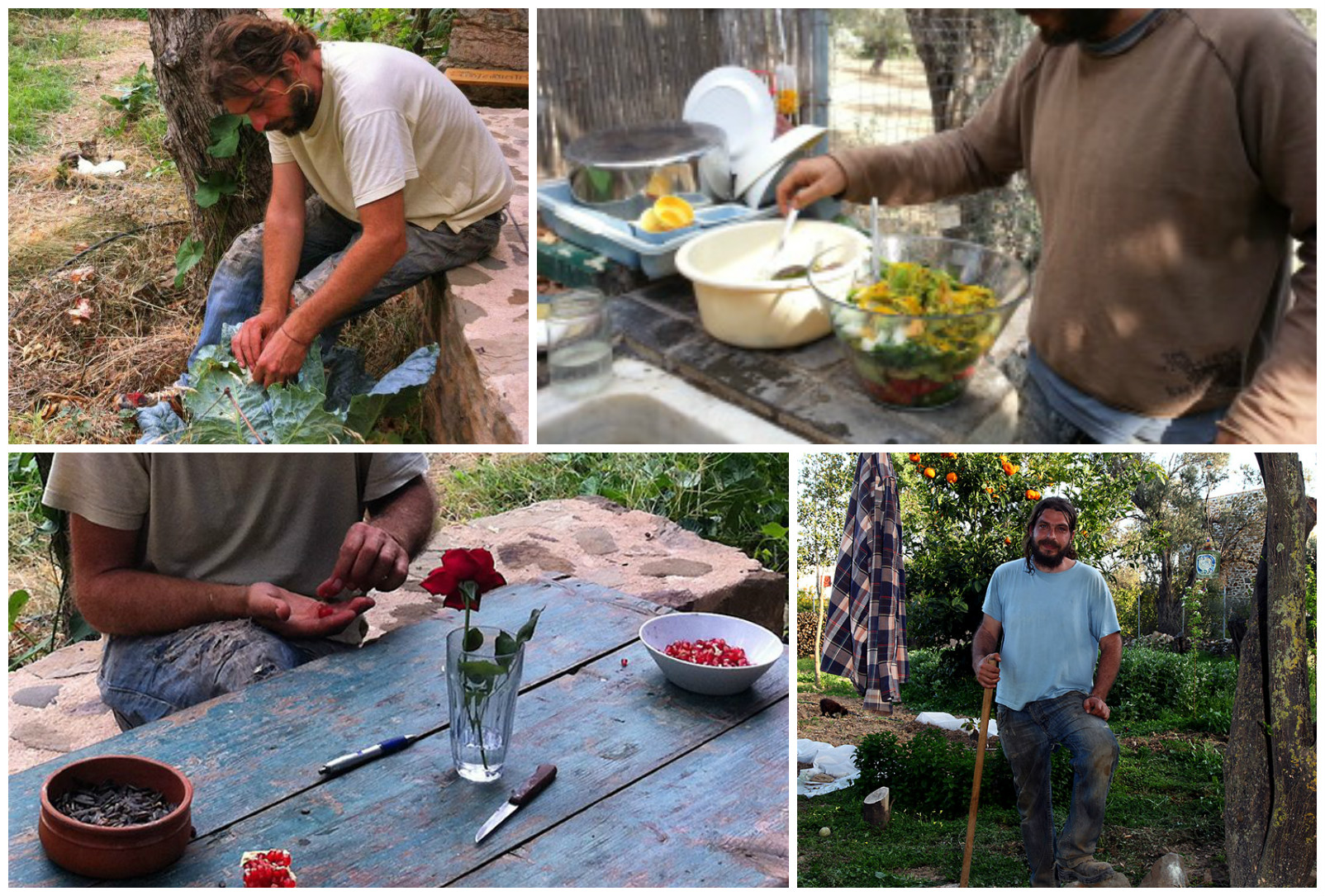
The local and the global are interrelated in most of your books, yet with an obvious priority to the former. Is locality still relevant in an increasingly globalized world? Could local actions spark changes or policy actions at a national or even global level?
The ‘global’ is the sum of all the ‘locals’. Anyone who cares to live harmoniously both with their peers and all those different creatures of their surrounding micro-cosmos, advances global harmony. It’s only through the collective actions of small communities, which are truly aware of their natural dependence and co-existence, that there is hope for change at a global level. It’s only from small communities that humanity may review its value system, shed its misguided self and realize that true wealth lies in biodiversity and natural resources.
Critics claim that your emphasis on rural happiness vs urban decline aims to revitalize an idealistic past. Since you are also an environmental activist and a farmer yourself, do your books constitute another way to motivate people towards an alternative way of life?
I’m not a fan, nor a fervent supporter of a past way of life. Because I’m sure that were we to go back to the past, we would sooner or later reach the same point, we would come to the same deadlock, which will be even more daunting. I personally live with plants and other creatures, close to natural resources, which I try to protect and manage as prudently and conscientiously as I can, while through some of my books I propose a change of attitude: to come closer to our natural self, renounce our consumer nature and turn to a post-consumer era; a change that has already started to take shape.
“To modern war refugees that come to our country we owe to give back in return what their ancestors offered to ours”. Given that your first book [Συρματένιοι, ξεσυρματένιοι, όλοι] is about war refugees of Chios in the Middle East (1941-1946), how would you comment on the current refugee/migrant crisis?
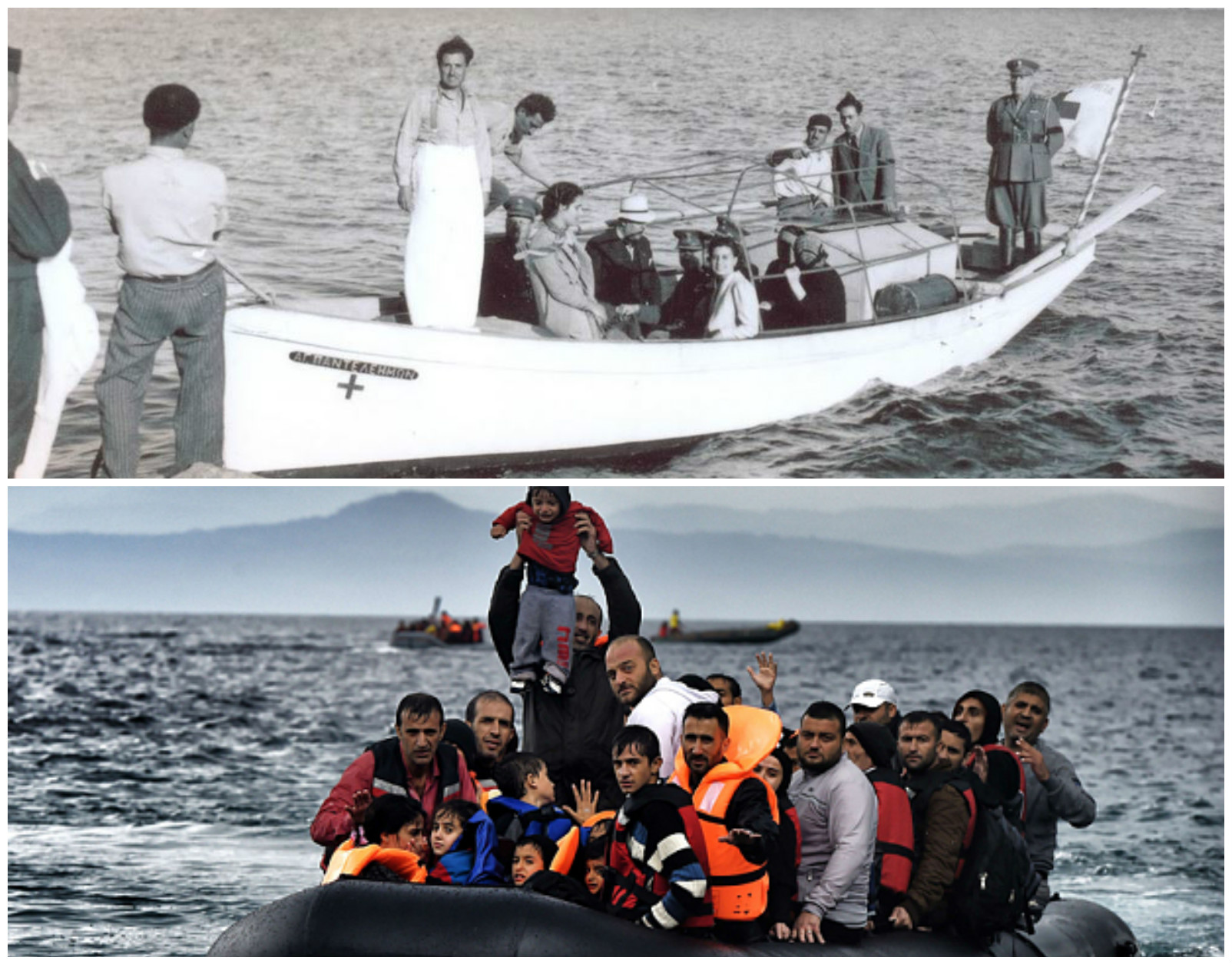
The current refugee flows move in the exactly opposite directions, compared to the ones in 1941, when impoverished Greek war refugees left for the Turkish coast on boats and ended up– after dangerous and long journeys – in the Middle East. War is the reset button of capitalism.
Modern wars are the result of the irrational consumption of the planet’s natural resources by the so-called developed countries and societies. These countries ‘thrive’ to the detriment of other humans and places, whose natural wealth they covet or have already conquered and immorally exploit in order to continue ‘thriving’. A perfectly natural consequence of such violent conquest or acquisition of a place’s natural resources is the shift of its population to where its natural resources are heading.
In the so-called developed world, we are witnessing the beginning of a widespread racial and population redistribution: it is neither possible nor ethical to try to stop this by violent means. The only solution is to move the political agenda towards preserving our natural resources, to adopt a biocentric -and no longer anthropocentric- way of development and living. We need to abandon the suicidal, if not murderous, rampant consumerism if we want to safeguard every country against disintegration and destruction.
“Writing and social activism go hand in hand. As long as I’m socially active, I will continue writing. When I’m tired, I will stop writing as well”. Tell us more.
Writing for me is a result of social activism; literature lies inside life itself, born and flourishing through the interaction among people and other living organisms. In other words, literature lives free in human societies and the writer, who, by definition, has the desire to discover it and turn it into a book, cannot but intermingle with other people, delving into their souls, observing their expressions, their actions, their attitude toward the world and gathering their words. When doing that, he cannot help but take part in their affairs and take a clear and public stance on all the issues they are preoccupied with. The writer cannot do otherwise; it’s a natural reaction against injustice. At least this is how I experience it personally.
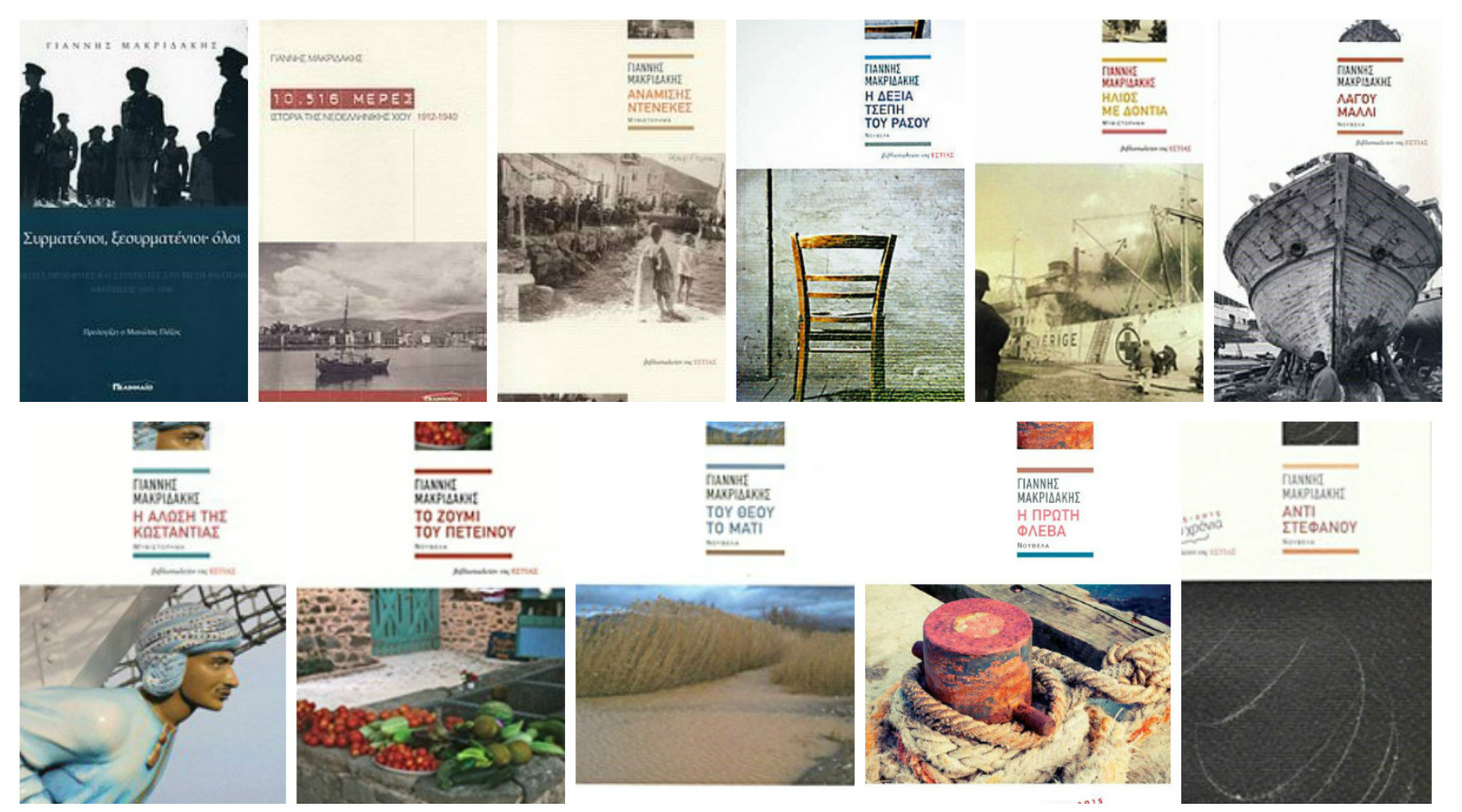
*Interview by Athina Rossoglou
TAGS: LITERATURE & BOOKS | READING GREECE

